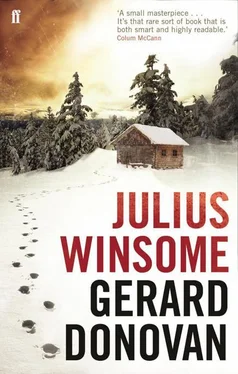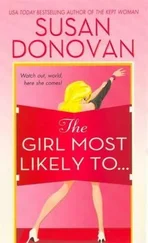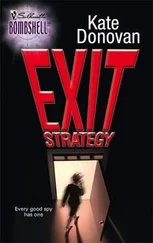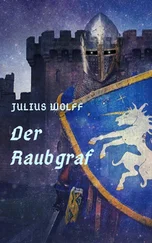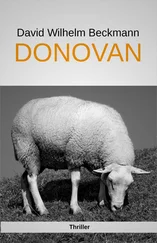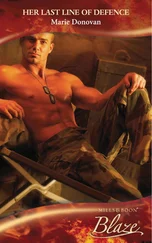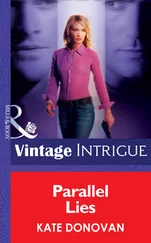Something told him. He looked and saw me.
This man’s face in front of me now was cleaned away with fear, but the traces left on it told me all I needed to know.
I RECOGNIZED HIM, WHICH IS TO SAY THAT I DID NOT shoot him dead on the spot, this man who had sent three or four cartridges my way, any one of which would have crumpled my frame like a wet egg under my blanket and coat. He turned on his side and arched his rifle over his head, but I had the barrel centered between his eyes and he looked at me straight down along the sights and let it fall, still holding it, into a depression at his side, a place he should have put himself in to begin with, his body lower than his rifle.
It’s you, he said. I knew it was you.
I said, If you knew it, you didn’t take advantage.
I brought the aim to his chest so I wouldn’t miss if he moved. So we’re on speaking terms after all, I said.
Shooting me will be different.
Really, I said. I don’t think so. I shoot you, you die. It’ll be the same, I think, that’s the truth of it.
I mean shooting a police officer.
No, It’ll still be the same for you, I said. And as for what happens to me, you needn’t worry about that. You won’t worry.
He seemed to have exhausted his store of words, so I spoke again for him.
And I’m surprised to hear you say anything to me, I said.
He eyed his rifle, brazen as could be. As if I was just going to stand there.
I have a question, I said, using my shoulder to wedge the rifle while I fished the drawing out of my pocket half way before stuffing it back suddenly. Didn’t want to be fiddling with paper now. He’d have that thing up in a flash.
Did you shoot my dog, I said. It was around here, as a matter of fact, that he was shot, this close to my home.
I did not, he said. Is this what this is all about, a dog?
I brought the rifle up. Your final words on the matter?
Then he broke all at once like a china cup on a concrete floor, his hands covering his face, as if they’d stop a .303 shell. A loud shriek. Jesus, please don’t kill me. Please. I don’t want to die.
Troy, I said, keeping the rifle at eye level while risking the familiar first name, I’m far from being Jesus these days.
I won’t tell anyone. No, no dog shooting, it wasn’t me.
He grabbed for his weapon and I kicked it away, shot at the ground in front of him as he lunged after it and re-chambered while he jerked from the shock, scrabbling around in the snow and around himself for bullets, grabbing away at nothing in his clothes, no holes, no blood. He looked up at the rifle and flinched as it went back to him. He covered his head and waited for it.
What line of business are you in, I said, aiming.
He screamed, then realized I had spoken and not shot.
He said, You know. His voice shook like a pond under a breeze.
I don’t mean your job. I heard once you have a business on the side, evenings possibly.
Security, he said. I own a security firm.
Security, I said.
He nodded.
Is it a success?
He nodded.
I said nothing then. The truck engine was tiresome and I wanted to switch it off, was tired of speaking loudly over it, this dead man over there riding his truck.
It is true that frightened men urinate. The body ditches everything for flight. Troy’s pants ran.
I said, Take off your jacket.
He pulled off the white jacket. I told him to empty the pockets and saw a phone and keys and such fall out. He stood in a flannel shirt, black, with beige at the collar.
What time is it? I said.
He looked at his wrist. After four.
Now we’ll go home, I said. Put it back on, and turn your friend’s key for him.
Wondering what the trick was, when and where the bullet would tear into him, he scrambled up and got into the jacket before pulling the white scarf off his whiter neck. After he turned his confederate’s truck off, he had another question for me.
Where’s home? he said.
Second star to the right, I said.
What?
Follow me but by being in front. Home is ahead, and no more banter from you.
We walked back to the cabin under the rising moon and the faint glow of snow, two men and their footsteps, one holding a rifle to the other’s back, the oldest arrangement of power.
I WAS IN NO HURRY TO SAY ANYTHING, ONLY TO REACH the house before complete darkness. That was some garboil in the woods, I said.
I don’t understand, he said.
I meant disorder in the woods. You and your distraction of gallowglass.
Gallows?
The loose infantry of all of you in there, I said.
We passed the heavier trees, the deep middle woods.
You must have taken me for a right geck with that truck blasting through the woods at me, I said. Did you think I would run and then you shoot me?
That was the plan, he said.
You were with them, then. You were the flanker.
We came together. I was to wait for the shot, the truck was to shake you out of the woods.
And the first man?
What’s a geck, he said.
A fool. The first man?
He didn’t know that we were out to trap you and believed we were hunting for the afternoon. Told him he could shoot all the deer he wanted to because I’m the law. He was the decoy. I thought we would have you before you shot. Yes, I was on the flank.
You see, you understand if you listen, I said. And you should have told him your plan and not let him stand alone. That could be construed as reckless in some quarters.
We walked then in silence for twenty minutes until I saw the porch light gleam through the gallimaufry of trees—every sort of tree—if I’d been explaining things to him. I was happy to be at the cabin, tired of this man and his urgency, his importance.
Stand over there, I said, and he walked to the flowerbed, looking around him, checking for an out, a dash into the woods, the place in the play that says Exeunt. A good place for him to leave the stage, I thought, there beside Hobbes, Hobbes the groundling.
Would you like a sherry, I said, standing in the doorway. I could see him itching to run, wondering whether I’d miss, knowing I would not.
I don’t drink, he said.
Fair enough. What time is it?
He looked: Five.
I kept the rifle on him. Now tell me you did not shoot the dog.
I had nothing to do with it.
Say it again.
I did not shoot the dog. It ran at me along the trail but was only barking at me.
Tiredness and stress must have brought him off his guard. I saw the turmoil in him as he tried to take back what he’d just said. A policeman should know more than to open his mouth unless he knows what’s coming out of it. All the men who march themselves off to prison with their own mouths.
What do you mean, I said, that he was only barking?
He pursed his lips, sullen, and lifted low and murderous eyes to me that met the Enfield staring back.
Answer me that question, I said. Answer it now.
IF A MAN WHISPERS SOMETHING TO YOU IN GERMAN, and you don’t speak that language, you won’t understand a word of it: he could be talking philosophy or cursing your parents. If he shouts the same thing or different German words at you, you still won’t understand a thing. When a dog lifts his head and howls while keeping his eyes on you, slightly from the side, it means he’s playful but knows you’re putting one over on him. If he puts his head back and barks at you full on, down from the stomach, he wants to play. If he growls from the stomach when you grab him and looks sideways at you, it’s pure affection, but if he growls straight ahead and shallow from the teeth, it’s a one-second warning. If you don’t understand his language, it’s all noise. Those men abroad in the woods did not, I think, understand my Shakespeare, though every word of it was English and I spoke carefully. I may as well have been barking at them. Time makes dogs of us.
Читать дальше
